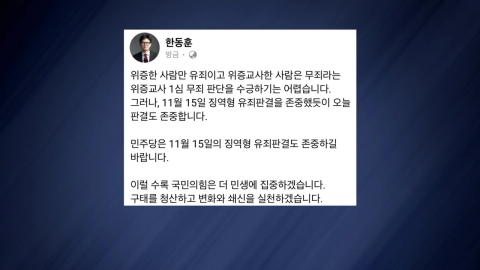■ Phone Connection: Jeong Woon-chae, former Navy Maritime Rescue Captain
* The text below may differ from the actual broadcast content, so please check the broadcast for more accurate information. Please specify [YTN News PLUS] when quoting.
[Anchor]
Attention is focusing on the cause of the sinking of the fishing boat and the life and death of the missing sailors. Let me point it out with an expert on the relevant content. Jeong Un-chae was connected to the former Navy's maritime rescue unit. Hello, boss!
[Jung Woonchae]
Hello,
[Anchor]
About 13 and a half hours have passed since the Venus sank. It's dark now. Is it possible to search and rescue missing people at night?
[Jung Woonchae]
Of course, it's also possible at night. However, there are many more limited and difficult things than the week, but it is difficult in such a national disaster, right? So, it's limited, but it's possible.
[Anchor]
We don't know the life or death of 13 sailors, where do you expect them to be?
[Jung Woon-chae]
It depends on the point of view of the viewer, but in my experience, I believe that in this case, it's within the hull or near the depth of the accident site.
[Anchor]
It is estimated that two people were inside the fishing boat at the time of the accident and most of the rest were moving catches from the deck, so usually sailors don't wear life jackets while fishing? Wouldn't this make the search and rescue more difficult?
[Jung Woonchae]
That's right. A life jacket is necessarily a lifeline from the rescuer's point of view, and from the rescuer's point of view, wearing a life jacket is much easier and more helpful. So, rather than unilaterally forcing a life jacket, of course, it may vary depending on the work, but it is necessary to further subdivide it and make sure that the operation guidelines for the life jacket are clear if it is okay not to wear it.
[Anchor]
Now, whenever there is a sinking of a fishing boat, what is mentioned is a space with air inside the hull, so-called air pockets. In terms of the size of the ship, what is the actual possibility of air pockets?
[Jung Woonchae]
As you just said, we always say air pockets a lot, but in fact, there are only two cases where air pockets can occur. One suddenly overturns 180 degrees, and the bottom of the ship faces the sky, and when the ship has not sunk yet, there is still air in the ship, so an air pocket can be formed. In another case, the depth is shallow, and there is a possibility that there will be an air pocket only if the ship is not yet sunk to the bottom by the ship's structure when the ship's hull is floating on the surface. In most cases, however, it is reasonable to see that there is little chance of an air pocket when the ship is completely sunk.
[Anchor]
As far as I know, the water temperature is about 22 degrees. In this case, how many hours can the missing person survive?
[Jung Woon-chae]
I can't say it clearly, but in terms of doctrine, it's going to be around 20 hours, but it depends on the personal situation and the situation at that time, but I think around 20 hours, I think that now has reached the threshold of viability.
[Anchor]
It's been about 14 hours since the accident occurred, and I'm worried. The Venus is now completely sunk and sank, and the Coast Guard has revealed that the water depth of the accident area is 80 to 90 meters, the wind is 4 to 6 meters per second, and the wave height is about 1 meter. How much will the weather affect the search?
[Jung Woonchae]
There are two ways to distinguish the effects of weather on searching. Wind and waves are affected in searching the water, and underwater rescue is the most important thing. As you just said, if the water depth exceeds 80 meters, the number of people who can search there is extremely limited. It's difficult for me to be able to access it, but in Korea right now, the only thing that can dive at that depth and show the possibility of rescue is SSU. So depth is very important, and rescue and search in this depth is very difficult, so in a way, it's very difficult. So, it's often said on air that it's easy to lift, but from the perspective of the actual rescuer, you have to use a high-level diving technique and hang wires to get there and do this again. In addition, the ship is scattered with fishing nets and such. In a way, a very difficult task is expected, in which the life of the rescue ship is also dangerous.
[Anchor]
I heard you're in Jeju Island right now. Have you been to the scene?
[Jung Woonchae]
I haven't been to the scene.
[Anchor]
There is an accident in the sea 24km northwest of Biyangdo Island in Jeju, what kind of area is this usually? Do accidents happen often?
[Jung Woonchae]
As far as I know, accidents often occur there. But from what I've heard so far, I haven't checked it myself, but there are a lot of risk factors such as currents and reefs around it, but this case seems to have nothing to do with it.
[Anchor]
The cause of the accident needs to be investigated now.The sunken Venus is known as a carrier of the mackerel fishing fleet. At that time, it is said that the work of transferring catches from ships called the main line was underway, but do these accidents often occur at sea?
[Jung Woonchae]
I don't remember exactly. There was a similar accident a few years ago. There was an accident that I flipped over because the fishing net was heavy while working on the fishing net. This accident can be distinguished in only two ways. Whether the ship sank due to flooding because of a problem with the hull itself, or how it became heavy, overloaded and lost its resilience as the ship tilted to one side. In my case, in other words, while doing heavy work, I didn't know the exact weight of the fishing net in the water, and I thought that it was momentarily tilted by a heavy load, or that I lost resilience.
[Anchor]
So, do you think that there is a high possibility of sinking due to overload?
[Jung Woonchae]
It's not a simple overload, but when a weight is momentarily biased to one side, it loses its resilience. This means that it is likely to have overturned as the weight is moved to one side while the transfer side suddenly tilts.
[Anchor]
It is known that there was a lot of catch at the time of the accident due to the bad weather recently.
[Jung Woonchae]
So it's in line with what I said just now. As such, the huge catch and nets in the water are intertwined, so I carefully judged how to move them and didn't make a scientific judgment and just moved them roughly, so it shows that an unexpected weight was put on one side.
[Anchor]
In fact, according to the crew's testimony, the ship crossed while lifting the net before the other carrier arrived after the first loading and unloading of the catch. There is a part that is now in line with the interpretation you said, but it seems to have implications for other fishing boats or other ships operating at sea.
[Jung Woonchae]
That's right.
[Anchor]
I heard that the usual method of fishing is that six ships form a single fleet and fishing is carried out, but why couldn't we rescue so much when there were many ships nearby?
[Jung Woonchae]
I'll tell you the same thing I said in the first half of that. If you listen to the work on the ground, almost everyone was working on it, but if that's true, why did only 12 people rescue if 25 people were on the deck and suddenly fell? What is it? For example, the person who was rescued was floating on the water. For example, he knew how to swim or he was maintained by other structures. Otherwise, if you can't swim in a serious way suddenly in the dark night, you can drown right away. It means that it goes under the water right there. Then you can't find it. That's what I'm judging.
[Anchor]
What should the rescuers working on the scene be most careful about right now?
[Jung Woonchae]
So it's the same as what I said just a moment ago. Now, this operation is inaccessible to ordinary divers and ordinary divers in Korea. All forces, such as ships and fishing boats, will be mobilized on the water, but the work that takes place under the water is limited. So it's an operation that only high-level diving techniques and skilled rescuers can do. So what I want to say is very dangerous. Of course, it is said that it is easy to lift and search for the Korean media and the people, but from the perspective of the actual rescuer, it is necessary to do heavy work in addition to the difficult diving technique. I would like to tell you that it is by no means an easy task.
[Anchor]
I hope we can finish the rescue as soon as possible. After that, the Coast Guard investigation into the cause of the sinking will begin in earnest, so what do you think we should focus on?
[Jungwoonchae]
Of course, I'm not an expert on that, so I can't tell you in detail.That's what I see. We need to focus on the cause of the accident, but how do we see the cause of the accident? Didn't I tell you earlier? The first is the possibility that a certain load suddenly loaded and lost its resilience and overturned, and there is one case. In another case, there is a problem with the hull itself, so it was old, flooded, damaged by external force, or self-inflicted, and in my opinion, rather than the possibility of an accident caused by such external force, the loss of resilience. Therefore, it is considered to be the loss of resilience due to the sudden movement of the load, but if we investigate these two causes, the answer will come out.
[Anchor]
I see. There was an accident in which a fishing boat sank in the sea near Jeju Island early this morning. Jung Woon-chae, the former Navy Sea.I heard the explanation of the leader Nan. Sir, thank you very much.
[Jung Woonchae]
Thank you.
※ 'Your report becomes news'
[Kakao Talk] YTN Search and Add Channel
[Phone] 02-398-8585
[Mail] social@ytn. co. kr
[Copyright holder (c) YTN Unauthorized reproduction, redistribution and use of AI data prohibited]
Society
More- "Fire at a motel in Hwaseong-si, Gyeonggi-do...""18 people will get hurt".
- Thirteen-year-old elementary school student who was riding a bicycle was hit and killed by a village bus.a driver's appointment
- "Fire at a motel in Hwaseong-si, Gyeonggi-do...""18 people will get hurt".
- "Perjury, perjury teacher." Mixed guilt and innocence...Why?




![[Site Y] "My heart has become stronger"...TOURS CHANGES AGENT'S REPLACEMENT AND CONCERNED Comeback Amid Confusion](https://image.ytn.co.kr/general/jpg/2024/1125/202411251738082448_h.jpg)




